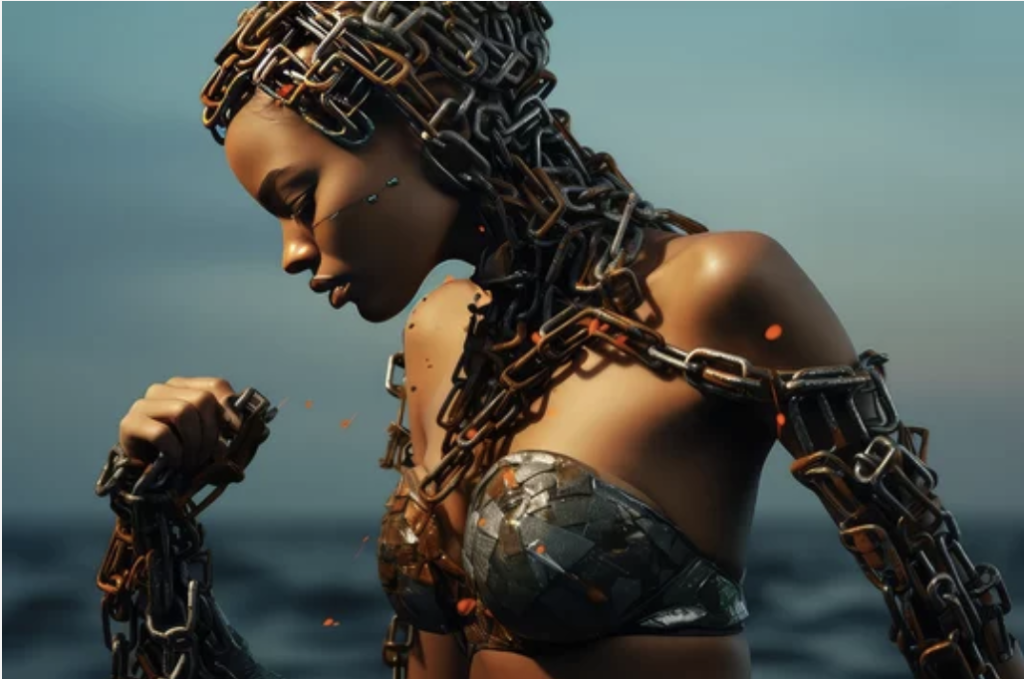The term “Black woman” encompasses a rich and diverse population of individuals with African or African American heritage. How we are perceived by others often influences our interactions and relationships, but what happens when these perceptions lead to the feeling of being “othered?” From the moment of birth, Black women face a barrage of assaults on the black female identity, driven by societal standards that were never meant to include them. This article delves into the contemporary perceptions of Black women, their origins, and, most crucially, how these perceptions impact how a Black woman sees herself.
The Power of Media Representation
The American entertainment industry wields significant influence over our society. Television programs have the unique ability to introduce us to diverse people in a way that is physically impossible. Every day, we can gain insight into the lives of various ethnicities and cultures by just turning on the TV. This gives the entertainment industry an immense reach. Unfortunately, stereotypical portrayals in media often depict people of color in a false and negative light. Black women, in particular, are viewed as either ill-tempered, overly sexual, or extraordinarily caregiving, simply because these are stereotypes that are perpetuated in the media.

Exploring Stereotypes
Mass media affects our thoughts and beliefs, influencing our behavior and interactions, and three recurring stereotypes of Black womanhood have shaped media portrayals over the years: the Mammy, the Jezebel, and the Sapphire. These stereotypes have contributed to the way Black women are treated in society, by narrowing the view of who Black women are and shaping racial attitudes in the country.
The Mammy

The Mammy stereotype is symbolized by figures like Aunt Jemima. It links Blackness with servitude, portraying Black women as overweight, subservient, and content to please others. This stereotype forces Black women into the role of self-sacrificing caregivers. This caricature is perpetuated in mainstream media today, oftentimes in the form of the black female “friend” in many situational and sitcom storylines who rarely matches her white, and usually more attractive, counterparts.
The Sapphire
The Sapphire stereotype, with its roots in the Amos ‘n’ Andy radio show, depicts Black women as angry, emasculating, and loud. It challenges the idea of soft, quiet femininity, portraying Black women as hot-tempered and often bitter. This stereotype is reinforced by many reality TV shows which depict Black women as angry and volatile.

The Jezebel

The Jezebel stereotype characterizes Black women as sexually depraved and immoral. The media perpetuates this portrayal in music. Stereotypes like “Black bitches,” “gold diggers,” and “jezebels” have become all too familiar in defining Black womanhood for young black women. These stereotypes not only affect how they see themselves but also how the world views them.
The Impact of Social Media
Black women are pushing back against the stereotypes and caricatures that have long dominated discussions about our identity. Social media provides a unique platform where Black women can express themselves and have ownership of their identities. It’s a space where we can actively engage with various forms of media to make sense of our experiences, navigate significant life changes, and connect with other Black women. It’s a way of reorganizing the canvas of identity to emphasize the images that align with a personal vision of the Black female self. By dismantling harmful stereotypes, we can promote a better understanding and appreciation of the diverse and valuable contributions of Black women in our communities and society as a whole.
Representations of Black Women in Hollywood
Leave a Reply